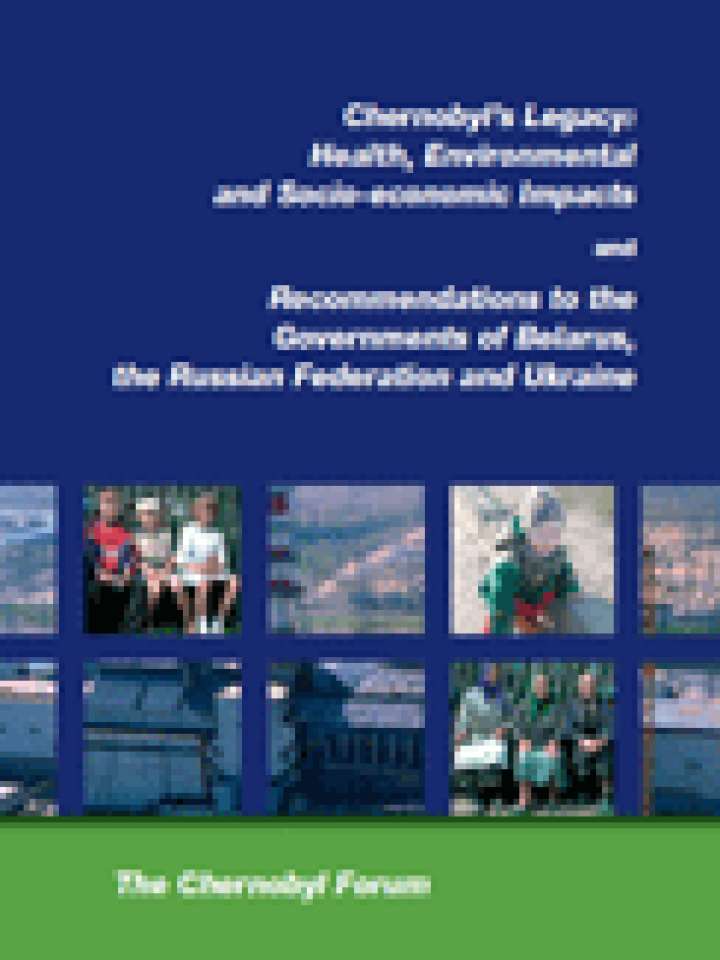Chernobyl's legacy: health, environmental and socio-economic impacts and recommendations to the governments of Belarus, the Russian Federation and Ukraine
Part 1: Chernobyl's legacy: health, environmental and socio-economic impacts
Nearly 20 years after the Chernobyl nuclear power plant (NPP) accident, many questions remained unanswered regarding the health, environmental, and socio-economic consequences of the disaster. The individuals and countries most affected had yet to obtain a clear scientific consensus on the impact of the accident and authoritative answers to outstanding questions. To fill this void and to promote better understanding and improved measures to deal with the impacts of the accident, the Chernobyl Forum was established in 2003.
To provide a basis for achieving the goal of the Forum, the IAEA convened an expert working group of scientists to summarize the environmental effects, and the WHO convened an expert group to summarize the health effects and medical care programmes
in the three most affected countries. The information presented here and in the two full expert group reports has been drawn from scientific studies undertaken by the IAEA, WHO, UNSCEAR and numerous other authoritative bodies. In addition, UNDP has drawn on the work of eminent economists and policy specialists to assess the socio-economic impact of the Chernobyl accident, based largely on the 2002 UN study as above.
Part 2: Recommendations to the governments of Belarus, the Russian Federation and Ukraine
At the Chernobyl Forum meeting in April 2005 where the two reports of the expert groups — “Health”, coordinated by the WHO, and “Environment”, coordinated by the IAEA — were considered and approved, the Forum participants from Belarus, the Russian Federation and the Ukraine requested the Forum to develop recommendations for the Governments of these three countries on special health care programmes and environmental remediation, including needs for further research, as well as for economic and social policies.
The document was prepared by the Forum Secretariat initially based on the recommendations presented in the Forum’s technical reports. In addition, UNDP has contributed recommendations for economic and social policies based largely on the 2002 UN study, Human Consequences of the Chernobyl Nuclear Accident – A Strategy for Recovery. The recommendations were circulated among the Forum’s participants and eventually accepted by consensus. This document contains mostly generic advice for the Governments of the three affected countries; more detailed recommendations can be found in the respective technical reports. With regard to radiation protection of the public and the environment, the recommendations are based on current concepts of the International Commission on Radiological Protection (ICRP) and international safety standards developed by the IAEA.
Explore further
